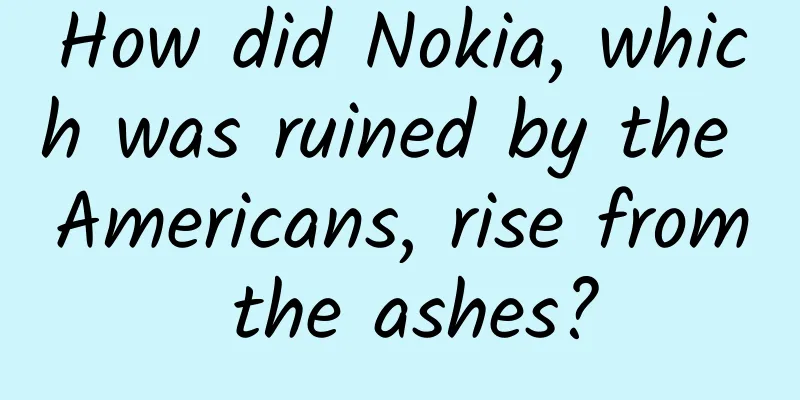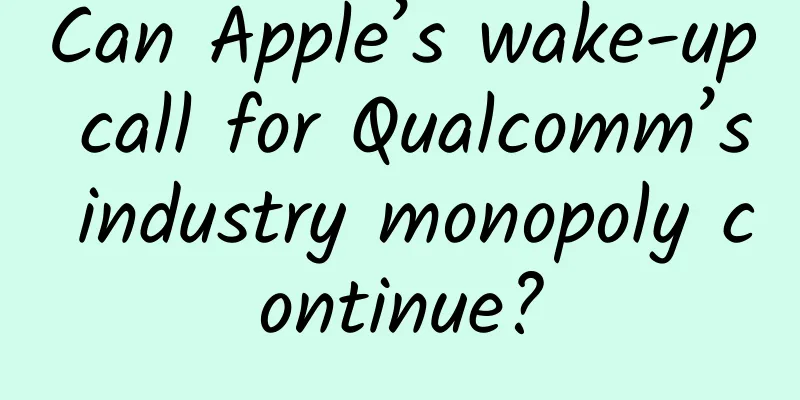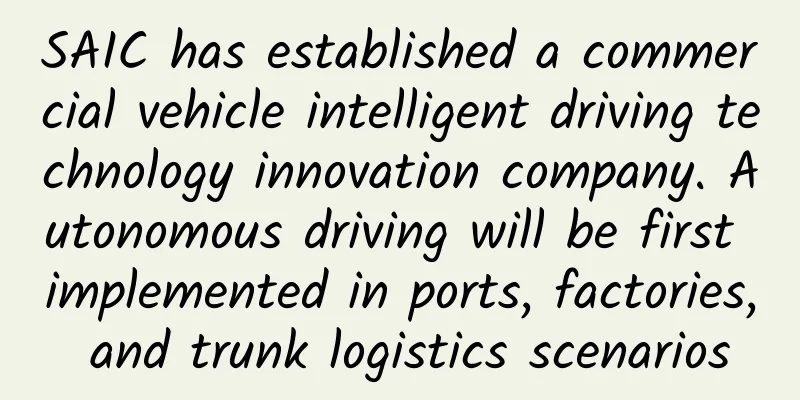How did Nokia, which was ruined by the Americans, rise from the ashes?

|
Recently, there have been more and more rumors about the former mobile phone giant Nokia returning to the mobile phone market, but this time the rumors are relatively official. The main source of information is that Nokia CEO Rajeev Suri said in an interview with Germany's Manager Magazin that once the agreement signed with partner Microsoft takes effect in 2016, Nokia plans to return to the mobile phone market to design and license mobile phones. Suri said: "We will seek appropriate partners. Nokia Mobile really started to flourish in the mid-1980s, and it has been more than 30 years now. According to the current fashionable saying, Nokia Mobile Business is actually just a "venture capital" of Nokia Corporation, but it is different from ordinary VCs in that Nokia not only invested money but also worked on this project. This project made Nokia the hegemon in the global mobile phone field in the past. Of course, in the past 30 years, Nokia has experienced development, glory, decline, and finally was forced to sell. A defeat without mistakes In fact, in today's Internet era, similar Nokia-style plots will continue to repeat themselves. This may not be the company's fault, but the times are changing too fast and consumers are changing their minds too quickly. It can be said that Nokia's own comments on this "movie" are very accurate, "We did nothing wrong, but for some reason, we lost." In 2007, Nokia was still the king of the smartphone market. Even in 2011 when Apple and Android were rising strongly, Nokia still created sales of 470 million units with the three words "Nokia", but in 2013 it was forced to choose to face the fate of failure and was acquired by Microsoft. From 2007 to 2013, it was not long or short for 6 years. A company whose brand name was once synonymous with mobile phones, such a powerful company, was out of the game. But in my opinion, this is more like a death without mistakes. It can even be said that it is not only without mistakes, but also almost perfect in many aspects: first, Nokia always insists on high product quality, which can be said to be a very responsible enterprise; second, it presents its own reliable technology through different product lines to meet the needs of different groups of people; third, it has perfect channel management capabilities; fourth, it has unique technological innovation and exploration capabilities; fifth, it has a global after-sales service guarantee system. As the former overlord of the mobile phone industry, before 2010, the Symbian system it created was not as easy to use as today's Android, but then again, no one's system was "easy to use" at that time. In other words, when Nokia launched the Symbian system, Android was also in the exploratory stage. At that time, few people, including Nokia, really looked down on the Android system. Perhaps because Google itself had neither strong hardware sales capabilities nor mobile phone production, in order to keep Android alive, it was forced to choose a strategy of trying to save the situation by opening up the Android system and letting everyone come up and play with it according to their own needs. As a result, of course, this "beauty" instantly attracted the interest of many men (mobile phone manufacturers). Everyone rushed into the Android system, regardless of how many loopholes and security risks it had, and used the name of Google to endorse their own smartphones. This gamble, not to mention Nokia, even Google itself did not expect that the Android system would survive like this and become the dominant one in the mobile Internet era. This is the way to play and die in this Internet era. Many uncertain factors may occur beyond the intention of the enterprise, but they just happen. Just like some previous online products such as Moman and Face Meng, the developers themselves did not understand why they became popular in an instant, and then died in an instant. And this uncertainty factor is also the most challenging and terrifying event in the business strategy of this era. Microsoft missed the entire mobile Internet era Nokia was unknowingly ruined by two Americans. One of them ruined Nokia from the hardware product itself, and his name is Steve Jobs; the other ruined Nokia from the pure software system level, and his name is Google. After all, a lean camel is bigger than a horse. History sometimes always has some dark humor. Nokia, which was ruined by two Americans, was supported by another American, Microsoft. In September 2013, Microsoft announced that it would acquire Nokia's mobile phone business for 3.79 billion euros and purchase Nokia's patent license for 1.65 billion euros. The total price was about 5.44 billion euros, which is 7.17 billion US dollars. In fact, Microsoft's purpose of acquiring Nokia was very clear at the time, which was to use the influence of Nokia's mobile phone brand to enter the mobile Internet through the Windows Phone system, hoping to continue the glory of Windows in the PC Internet to the mobile Internet era. As a result, this guy made a big mistake. At that time, the Windows Phone system faced two main competitors, one was Apple, which was completely closed, and the other was Android, which was completely open. Logically speaking, there was still a huge opportunity for Microsoft, as long as it grasped the third middle route, that is, moderately open while ensuring the security of the system platform. Compared with Android, its system security is higher; compared with the high-end Apple, it is more down-to-earth. However, Microsoft has moved the PC Internet thinking to the mobile Internet era and created a mini PC version of the Windows operating system. At this time, Apple and Android have already developed and built their own smartphone operating systems centered on users and from the perspective of user experience. Only Microsoft is still self-righteously bringing the monopoly "arrogance" thinking of the PC era back to the smartphone field, hoping to "monopolize" the operating system in the mobile Internet era again. At that time, Microsoft thought that it had successful experience in the field of PC operating systems and had acquired Nokia, a global giant in the mobile phone field. Therefore, as long as it added its own Windows Phone system to Nokia's mobile phones, it would be able to restore Nokia's prestige. This is not impossible, but there is a prerequisite, that is, Microsoft's Windows Phone system must also be user-centric, and in terms of the pleasantness of the user experience, it cannot be said to surpass Apple's iOS, but at least it cannot be worse than the operating experience of iOS. But in the end, this Windows Phone system is a completely "cheating" operating system for users, and it does not take users seriously at all. This kind of thinking and execution caused Microsoft to not only lose Nokia's money, but also miss out on the entire mobile Internet era. Why is Nokia returning? Since Microsoft itself has missed the era of mobile Internet, it is meaningless to keep Nokia at this time. It is better to give up. At least there is one less entanglement, and it can concentrate on the era of Internet of Things. According to the terms of the transaction at that time, after the acquisition by Microsoft, Nokia continued to own and retain the Nokia brand, while Microsoft obtained the right to use the "Nokia" brand on smartphones (Lumia) for 18 months and feature phones (Asha) for 10 years; and before December 31, 2015, Nokia was prohibited from using the Nokia brand on its own mobile communication devices. This means that the right to use the Nokia brand on Nokia's own mobile communication devices began to be lifted in 2016. In October 2014, Microsoft officially stated that it would use "Microsoft Lumia" to replace Nokia as the new mobile phone brand name. So the question is, what exactly does Nokia want to do by returning? According to data from the China Academy of Information and Communications Technology, in 2014, the cumulative shipments of the Chinese mobile phone market were 452 million units, a decrease of 21.9% from 579 million units in 2013, and the downward trend was more obvious in 2015. In other words, the entire smartphone market is already in a stage of "overcapacity", especially in the mid- and low-end markets where competition is fierce. To be frank, Nokia's return this time is not, nor has it ever considered re-entering the smartphone market to compete for this "bone" with the image of a so-called "return of the king". Its purpose is very simple, that is, how to make the three words Nokia achieve the greatest monetization value; of course, Nokia's ambition is definitely more than that. To put it simply, after Nokia's return, it will not linger on the smartphone market, nor will it consider re-establishing a strong smartphone R&D team, and then creating the ultimate mobile phone to participate in the competition in the smartphone market. Instead, it will adopt another simpler strategy, that is, to provide some appearance solutions and configuration technical parameter solutions, and then find an OEM manufacturer to manufacture and assemble, and then put the three words Nokia on it. The purpose of doing so is mainly due to the following considerations: first, to use smartphones to maintain the "warmth" of the Nokia brand in the market; second, to accumulate and deepen understanding of mobile Internet products through smartphones; third, to obtain some monetary returns for shareholders. Nokia's real ambition is in smart wearables Do you remember that Nokia once said that if it really returns to the mobile phone market, it will definitely bring revolutionary products, and the company is currently developing such products. Nokia's statement is actually not bragging. Judging from some of its patents that have been dug out, Nokia is actively laying out the smart wearable industry, and related patent technologies are also being continuously developed. From the perspective of product ideas, such as the BLU wearable smartphone that has fooled everyone recently, Nokia has many similar concept phones in its drawers. However, Nokia already had a high-tech phone like BLU 10 years ago, which most people think is very high-end today, and its technical concept is more advanced than this phone. Therefore, it is not impossible for Nokia to really return to the mobile phone market and bring about a disruptive revolution, but it is just a matter of time. As for the current return, on the surface, its purpose is as mentioned above, to keep the brand warm, accumulate some user experience, and then create some value for shareholders. In the near future, we will see Nokia return to the Internet of Things era with wearable devices that will subvert smartphones. As a winner of Toutiao's Qingyun Plan and Baijiahao's Bai+ Plan, the 2019 Baidu Digital Author of the Year, the Baijiahao's Most Popular Author in the Technology Field, the 2019 Sogou Technology and Culture Author, and the 2021 Baijiahao Quarterly Influential Creator, he has won many awards, including the 2013 Sohu Best Industry Media Person, the 2015 China New Media Entrepreneurship Competition Beijing Third Place, the 2015 Guangmang Experience Award, the 2015 China New Media Entrepreneurship Competition Finals Third Place, and the 2018 Baidu Dynamic Annual Powerful Celebrity. |
<<: Attacking India: Why domestic mobile phones are unable to defeat local giants
>>: Mango TV's president changed due to Hunan Radio and Television Group's listing
Recommend
User operation: How to recall lost users at low cost?
Before writing the article, let me do some calcul...
Lin Bin: Xiaomi's Four Principles for Becoming a "Hot-selling E-commerce Company"
A few days ago, I attended an economic forum in C...
Fake lizard? A look at the "illegitimate child" of the Triassic ancient sea
In the middle Triassic period, when dinosaurs wer...
How do you deal with your husband not being around? How to do embarrassing things alone at night?
My husband is not around all year round. How do y...
A woman's long-term use of oral contraceptives caused pulmonary infarction? You must know the truth about contraceptives
Expert of this article: Wang Xiaohuan, Doctor of ...
How to use the mini program for physical stores in Lanzhou? How to create a physical store mini program?
Many people think that the store app is not diffi...
Jesse's Trading System (half-year course) with instructions + video course
Jesse's Trading System (half-year course) wit...
Let me tell you why gems are so beautiful
As early as 18,000 years ago, people found neckla...
How do you plan a successful event and ensure that expectations are met?
A good product may not be known to anyone. After ...
Companionship growth training camp
Companion Growth Training Camp Resource Introduct...
A woman ate corn instead of her staple food for half a year. Why did the doctor shake his head? Don't mess around with blood sugar reduction →
High blood sugar is an increasingly common health...
China Passenger Car Association & Core Consulting: July 2023 Intelligent Connected Vehicle Insight Report
Trends in China's New Energy Vehicle Market C...
Tea drinking resources in the three towns of Wuhan
Wuhan high-end tea drinking is unique and very un...
If these 3 points are not clear, even the marketing gods will fail!
The simplest logic for marketing is to ask yourse...
WeChat operation: 20 self-media platforms that self-media people must know
Dingdian started out as a channel developer, so i...









